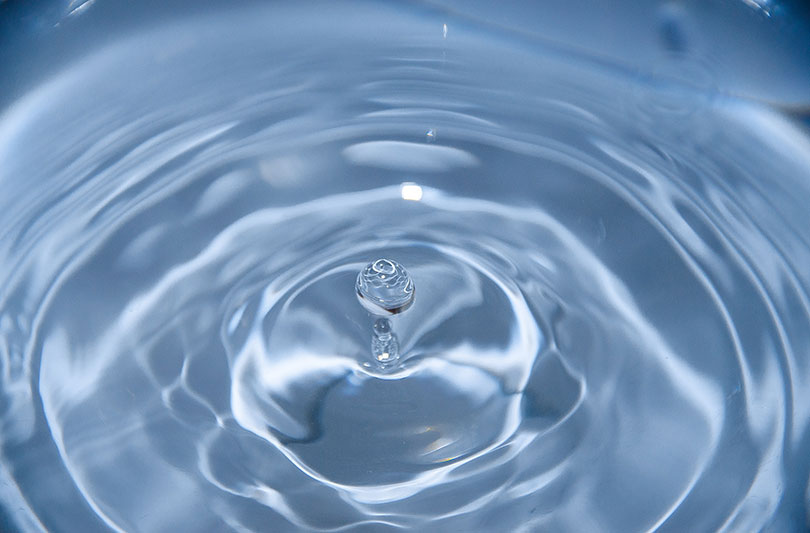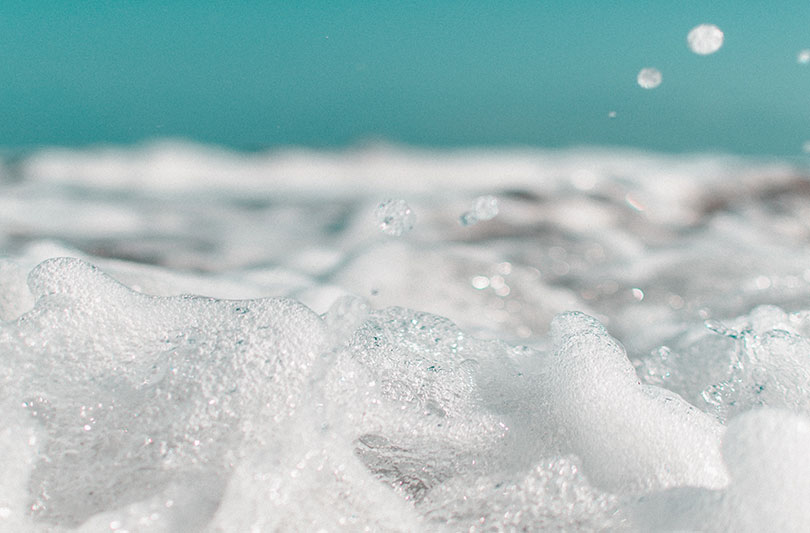Water softeners play a crucial role in improving water quality and preventing the negative effects of hard water. However, water softeners can encounter problems over time like any other appliance. Whether you’re a homeowner or a business owner, understanding these problems will help you spot issues and identify any water softener not working properly along with ensuring future optimal performance. So with that in mind, we’ve outlined some common issues with water softeners and provided practical solutions to address them effectively.
Understanding water softeners
Before diving into the common problems of a water softener not working properly, it’s essential to understand how they work. Water softeners consist of a mineral tank filled with resin beads that attract and remove the minerals responsible for water hardness. The resin beads require periodic regeneration with salt or potassium chloride to maintain their effectiveness.
During the regeneration process, the mineral tank is flushed with a saltwater solution that strips away the accumulated minerals from the resin beads. The minerals are then discharged, and the resin beads are replenished, ready to continue their water softening duties. So now let’s look at some common water softener problems which may arise during its lifetime use.

Low water pressure
Low water pressure can be caused by several factors, such as clogged pipes, a faulty pressure-reducing valve, or a malfunctioning water softener. To address this issue, check the water pressure before and after the water softening. If the pressure drop is significant after passing through the softener, it may be time to clean or replace the resin beads or seek professional assistance.
Resin beads fouling
Over time, resin beads can become fouled with debris and lose their efficiency in removing minerals from the water. This can result in decreased water quality and reduced softening capacity. To resolve this problem, consider performing a resin bed cleaner treatment or contact a water softener professional to clean or replace the resin beads.
Brine tank overflowing
If the brine tank overflows, it could be due to a malfunctioning float valve, incorrect salt dosage, or a clog in the drain line. Check the float valve for proper operation and adjust the salt dosage according to the water hardness. Additionally, inspect the drain line for any blockages and clear them if necessary.
Incorrect water hardness levels
Water softeners rely on accurate water hardness settings to determine the appropriate amount of regeneration cycles and salt dosage. If the water hardness levels are incorrectly set, the system may not effectively soften the water or may regenerate too frequently, wasting water and salt. You can check the hardness of the water in your area by visiting United Utilities water quality page and entering your postcode in the box provided. Once added you’ll get a summary report and full breakdown of the water hardness level and contaminants.

Excessive water consumption
If you notice a sudden increase in water consumption after installing a water softener, it could be a sign of the water softener not working properly. Possible causes include leaks, valve malfunctions, or continuous regeneration cycles. Check for any visible leaks in the plumbing system and ensure that the bypass valve is closed properly. If the issue persists, it’s advisable to contact a professional to inspect and troubleshoot the water softener system.
System regeneration issues
Proper regeneration is crucial for the effective operation of a water softener. If you experience issues with the regeneration cycle, it may be due to a malfunctioning timer, clogged valves, or insufficient salt levels. Check the timer settings to ensure they are accurate and functioning correctly. Clean any clogged valves or replace them if necessary. Additionally, maintain the appropriate salt levels to facilitate proper regeneration.
Incompatible water softener Salt
Using the wrong type or grade of salt in your water softener can lead to issues such as salt bridging, poor resin bed regeneration, or inefficient softening. It’s important to use the salt recommended by the manufacturer and avoid substitutes or low-quality options. Choose high-purity salts specifically formulated for water softeners to maintain optimal performance.
Salt mushing issues
Salt mushing refers to the formation of a thick layer of sludge at the bottom of the brine tank, hindering the regeneration process. This can be caused by high humidity, incorrect salt dosage, or the use of low-quality salt. To address salt mushing, clean out the brine tank, remove the sludge, and ensure proper salt usage and storage conditions.
Insufficient Water softener ventilation
Water softeners require proper ventilation to dissipate heat generated during the regeneration process. Inadequate ventilation can lead to overheating and potential system damage. Ensure that the water softener is installed in a well-ventilated area, and avoid obstructing the airflow around the unit.

Clogs in the control valve
Clogs in the control valve can disrupt the water softening process and reduce system efficiency. Common culprits include sediment build-up, debris, or resin beads getting stuck in the valve. To resolve this problem, shut off the water supply and carefully clean the control valve. Remove any obstructions and ensure smooth operation for optimal performance.
Salt Bridges
Salt bridges occur when a hardened crust forms in the brine tank, preventing the proper dissolving of salt. This can lead to insufficient regeneration of the resin beads. To address this issue, break the salt bridge using a long object like a broom handle and remove the hardened salt. Then, thoroughly clean the brine tank and ensure proper salt levels for optimal performance.
Malfunctioning bypass valve
The bypass valve allows you to redirect water flow around the water softener system when needed. If the bypass valve is malfunctioning or not operating correctly, it can lead to untreated hard water entering your plumbing system. Inspect the bypass valve for any signs of damage or misalignment and repair or replace it as necessary to ensure proper functioning.
Excessive salt usage
If you notice that your water softener is consuming an unusually high amount of salt, it could be an indication of the water softener not working properly. Potential causes include a malfunctioning brine tank float, incorrect salt dosage settings, or a faulty regeneration cycle. Check the float mechanism in the brine tank to ensure it is functioning properly and adjust the salt dosage based on the water hardness. If the issue persists, consult a professional to inspect and diagnose the problem.

Power outages and resetting
Power outages can disrupt the settings and programming of water softeners with electronic control panels. When the power is restored, the system may need to be manually reset to resume normal operation. Consult the manufacturer’s instructions or contact customer support for guidance on resetting your specific water softener model.
Noisy operation
Unusual noises coming from your water softener can be a sign of underlying problems. This could be due to issues like worn-out bearings in the motor, damaged impeller, or loose components. If you hear grinding, squeaking, or knocking sounds, it’s advisable to have a professional inspect and repair the water softener to prevent further damage and ensure quiet operation.
Water odour or taste issues
While water softeners primarily focus on removing minerals, they may not address certain odour or taste issues caused by other contaminants in the water supply. If you notice unpleasant odours or tastes in your water even after softening, it may be necessary to install additional filtration systems or consult with a water treatment specialist to address specific contaminants.
Excessive water hardness
In some cases, water softeners may not effectively reduce the hardness of the water to the desired level. This could be due to improper system sizing, outdated equipment, or water conditions that exceed the softener’s capacity. If you continue to experience high water hardness despite the presence of a water softener, consult a water treatment specialist to assess your system’s capacity and explore alternative solutions.
Over time, water softeners may experience wear and aging of components, which can result in reduced efficiency and performance. Seals, valves, and resin beads may deteriorate, leading to leaks, bypassing, or ineffective softening. Consider periodic inspections, maintenance, and component replacements to prolong the lifespan and functionality of your water softener.

Environmental factors
Environmental factors such as extreme temperatures, humidity, or exposure to chemicals can impact the performance and longevity of water softeners. High temperatures can cause resin degradation, while excessive humidity may lead to mould or bacterial growth. Additionally, certain chemicals present in water, such as chlorine or iron bacteria, can affect the effectiveness of the softener. Take measures to protect your water softener from adverse environmental conditions and consider installing appropriate filters or treatments if necessary.
Inadequate maintenance
Neglecting regular maintenance can lead to various problems with water softeners. This includes failure to clean the brine tank, neglecting resin bed cleaning or replacement, and overlooking routine system checks. To prevent issues, follow the manufacturer’s recommended maintenance schedule, which typically includes the mentioned cleaning, resin bed treatment, and overall system inspection.
System aging and component wear
Over time, water softeners may experience wear and aging of components, which can result in reduced efficiency and performance. Seals, valves, and resin beads may deteriorate, leading to leaks, bypassing, or ineffective softening. Consider periodic inspections, maintenance, and component replacements carried out by a water softener services professional for added assurance and to prolong the lifespan and functionality of your water softener.
If you are currently having problems with your water softener not working properly or would like to prevent such issues from happening in the future, we are on-hand to provide regular maintenance and repair services. Don’t let water softener challenges disrupt your daily life or compromise the quality of your water. Contact our team today on 01440 713095 to schedule a consultation and experience the difference our dedicated professionals can make. Trust in our expertise, and let us ensure your water remains soft, pure, and refreshing.

